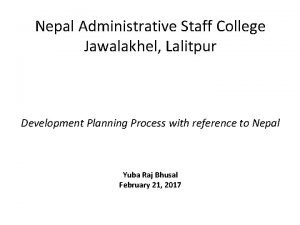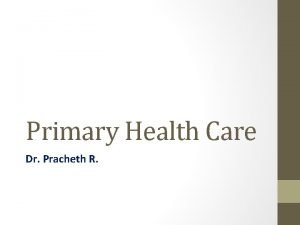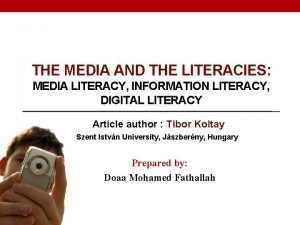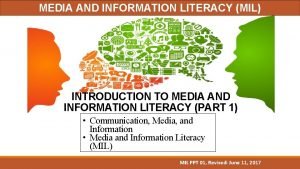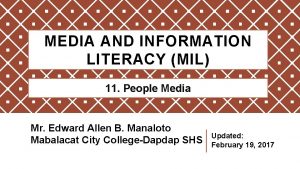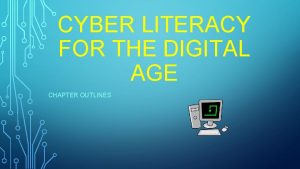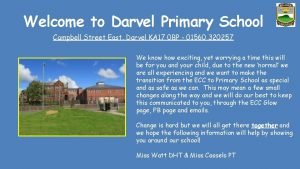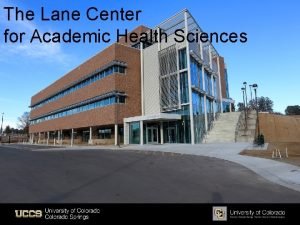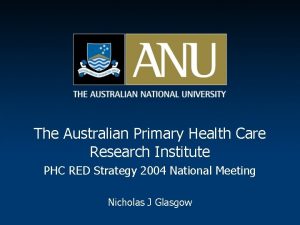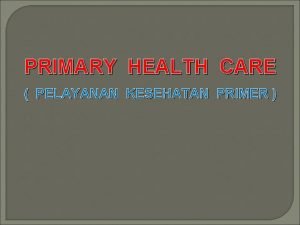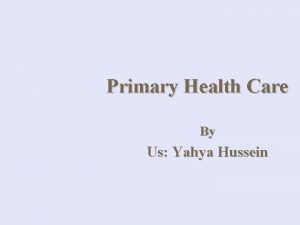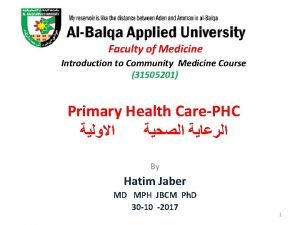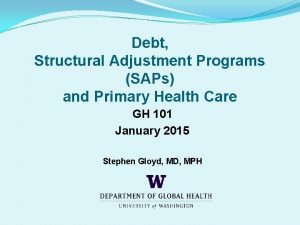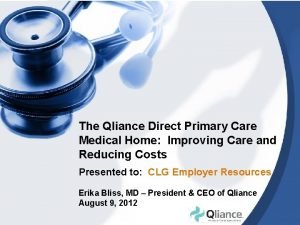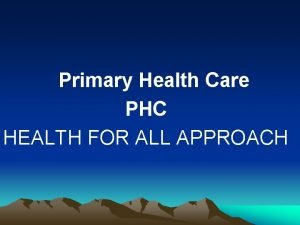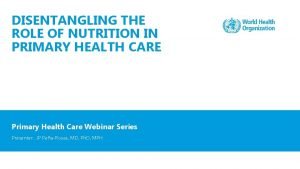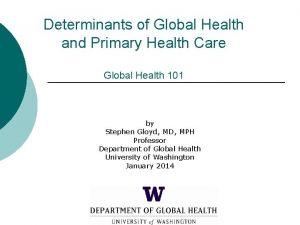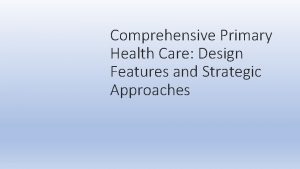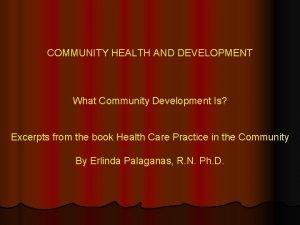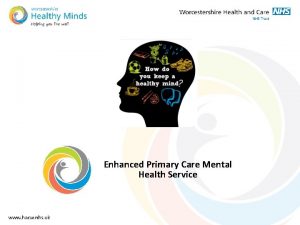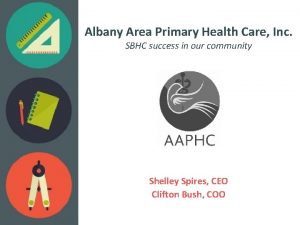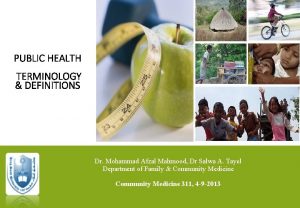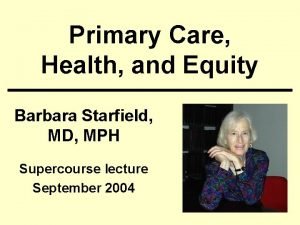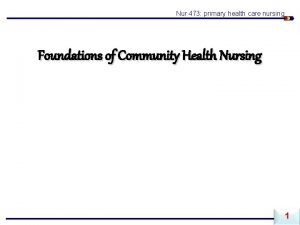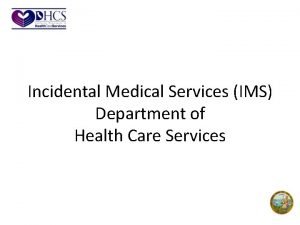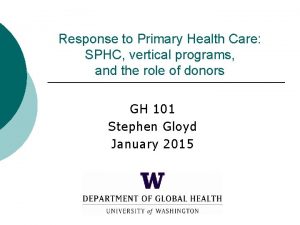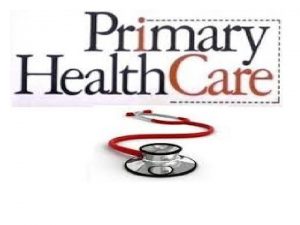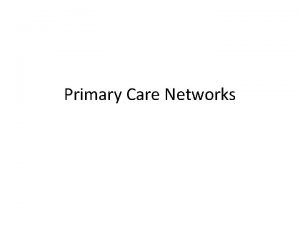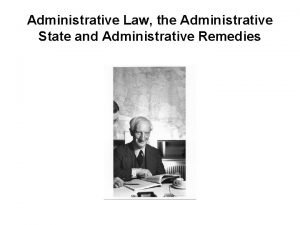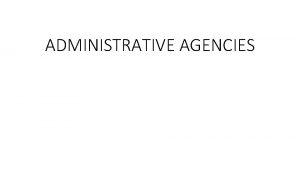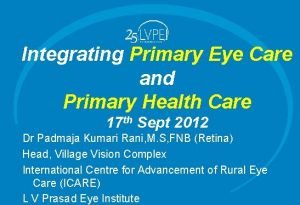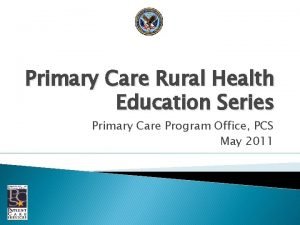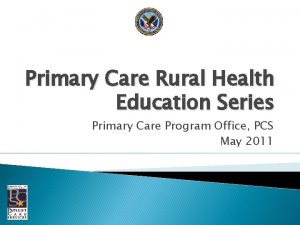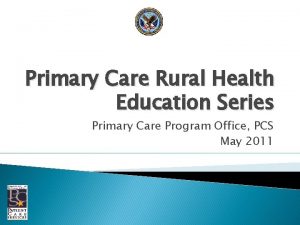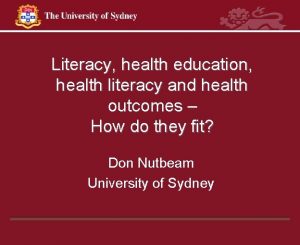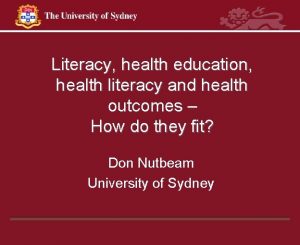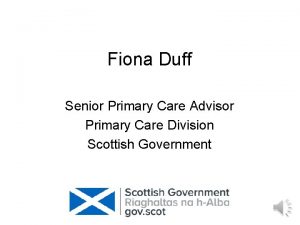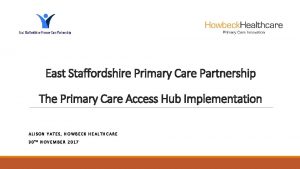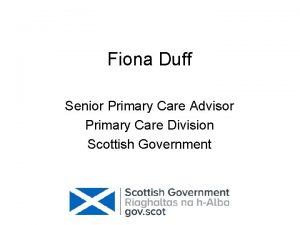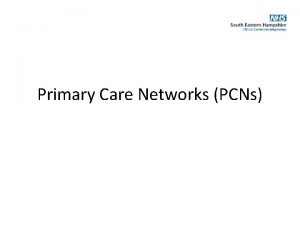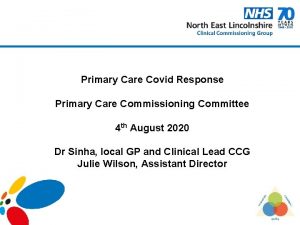Health literacy for primary health care administrative staff






























- Slides: 30

Health literacy for primary health care administrative staff

A good receptionist is worth their weight in gold And so is a good admin person

What do you know about health literacy?

Health literacy definitions Good health literacy means people: “have the capacity to obtain, process and understand basic health information and services in order to make informed and appropriate health decisions” Health literacy is an interaction between the skills of individuals and the demands of the health system Kōrero Mārama, 2010 http: //www. moh. govt. nz/moh. nsf/indexmh/korero-marama-health-literacy -maori-feb 2010 4

Evolution of health literacy Patients as a risk Service delivery improvement (health professionals) Health organisations & system 5

Health literacy demands • Reading, writing, listening, speaking, number, counting, calculating, measurement, time, statistics, analysis, critical thinking, problem-solving = health knowledge and skills For example: • Making an appointment over the phone • Completing an enrolment form • Taking the correct dose of medicine at the right time • Working out if a visit to the doctor is needed • Understanding how to negotiate an urgent appointment and what the alternatives are

A health literacy task DOSAGE ORAL: 1 or 2 tablets every 6 hours, preferably accompanied by food, for not longer than 7 days. Store in a cool, dry place. Question: What is the maximum number of tablets an adult can safely take in 1 day? 7

Health literacy demands of a health condition e. g. newly diagnosed diabetes

Question 1 How many adults have low health literacy in New Zealand? A. 1 million B. 1. 2 million C. 1. 4 million D. More than 1. 6 million 9

Question 2 Which is the largest population group with low health literacy in New Zealand? A. Māori B. Pacific people C. Pakeha D. Immigrants 10

Question 3 Health literacy means people have to: A. get the right information B. understand the information C. apply the information to make decisions D. all of the above. 11

Health literacy statistics in New Zealand More than 56. 2% of adult New Zealanders (1, 626, 000 adults) have low levels of health literacy Low levels are a result of unfamiliarity and complexity of health information Most people with low skills are Pākeha and employed and unaware they have low health literacy Everyone will have low health literacy at some stage in their life Particular issues for Māori, Pacific peoples, non English speakers, rural, younger, older & unemployed adults 12

A health literate provider • Manages and reduces where possible health literacy demands (placed on patients and families) and enables their health professionals and other staff to build the health literacy knowledge and skills of patients and families as needed • Takes a health literacy approach when planning, designing, delivering and reviewing services

What can you do to help reduce health literacy demands faced by patients and help patients build the health literacy they need? • Focus on words and navigation

How we learn new words 15

New words and reading • Adults need 40 exposures to a new word before it becomes part of their vocabulary • Generally adults will struggle to understand what they are listening to or reading where 80% of the words are not high frequency words 16

NZ PERMANENT RESIDENTS A NZ resident who has: A resident visa A permanent resident visa IS ELIGIBLE for publicly funded health care & Disability services. This includes: People who were granted residency before 29 November 2010, who still hold a valid residence permit (these are deemed “residence class visa”) Other people including people who arrived in NZ before 2 April 1974 and have been in NZ continuously from that date may also be permanent residents. (They need to contact Immigration to get proof of their residence status) www. moh. govt. nz/eligibility

NZ PERMANENT RESIDENTS A NZ resident who has: A resident visa A permanent resident visa IS ELIGIBLE for publicly funded health care & Disability services. This includes: People who were granted residency before 29 November 2010, who still hold a valid residence permit (these are deemed “residence class visa”) Other people including people who arrived in NZ before 2 April 1974 and have been in NZ continuously from that date may also be permanent residents. (They need to contact Immigration to get proof of their residence status) www. moh. govt. nz/eligibility

Health literacy demands of oral interactions “Listening takes place in real time ……. The listener does not have the option of reviewing the information presented and has little control over the rate of speech. ” Vandergrift, L. (2006) ‘Second Language Listening: Listening Ability or Language Proficiency? in Modern Language Journal, Vol. 90, No. 1, pp. 6 -18. 19

The critical nature of words • • • Practice Mass Positive results Wheeze/wees Explain acronyms PRN, B 4 SC 20

Not all health jargon is equal Essential health terms for patients Or Can be replaced by clearer, everyday words for patients – (this includes some important terms for health workforce to know for accuracy amongst themselves)

Help with navigation • What is the process of getting diagnosed/ advice/ treatment? • What & where are the services involved? • What are the treatment options & implications? • How do I get access to health services? • Who do I need to talk to? • Where do I get information when I need it? • What are the next steps?


Navigation: what must a person do/know to join your portal? • • How do you find out there is a portal? How do you find out what a portal is? Who do you have to talk to? What do you have to read/find? What IT skills do you need? What information do you have to supply/write? What are the sign-up and user steps?

Are these signs of low health literacy? Asking staff for help Bringing along a family member Not keeping appointments Making excuses – “I forgot my glasses” Not taking medication Not following instructions Postponing decision-making – “May I take these home? ” “I’ll read this when I get home” • Copying other people’s behaviour • • 25

You can’t tell by looking: use a Universal Precautions approach • As a starting point treat everyone as if they might have low health literacy • Find out what someone knows • Adjust your starting point depending on what the person knows 26

Three Steps to better health literacy http: //www. hqsc. govt. nz/assets/Consumer-Engagement/Resources/health-literacy-booklet-3 -steps-Dec-2014. pdf

Check you’ve been clear • Don’t ask : Do you have any questions? Do you understand? • Check that you have been clear - this is different from asking if a patient has understood you e. g. I want to make sure I’ve been clear and you have the information you need… you tell me what you have to do when…

Think of one thing you will try back at work

More information on health literacy http: //www. health. govt. nz/our-work/making-services-betterusers/health-literacy https: //www. hqsc. govt. nz/our-programmes/partners-incare/work-programmes/health-literacy/
 Tertiary level of care
Tertiary level of care Nepal administrative staff college
Nepal administrative staff college Staffing pattern of phc in nepal
Staffing pattern of phc in nepal Multi-cultural literacy
Multi-cultural literacy M i l subject
M i l subject Advantages and limitations of people in media
Advantages and limitations of people in media Cyber literacy for the digital age
Cyber literacy for the digital age Darvel primary school glow
Darvel primary school glow Steyning primary school uniform
Steyning primary school uniform Uccs primary care clinic
Uccs primary care clinic Australian primary health care research institute
Australian primary health care research institute Pengertian pelayanan kesehatan primer
Pengertian pelayanan kesehatan primer Dr. kanupriya chaturvedi
Dr. kanupriya chaturvedi Advantages of selective primary health care
Advantages of selective primary health care Defination of phc
Defination of phc Provision of essential drugs
Provision of essential drugs Principles of primary care
Principles of primary care Structural adjustment programs
Structural adjustment programs Direct primary care tacoma
Direct primary care tacoma Basic requirements for sound phc
Basic requirements for sound phc Nutrition in primary health care
Nutrition in primary health care Elements of primary health care
Elements of primary health care Comprehensive primary health care approach
Comprehensive primary health care approach Importance of community health
Importance of community health Enhanced primary care mental health
Enhanced primary care mental health Albany area primary health care dental
Albany area primary health care dental Public health terminology
Public health terminology Barbara starfield primary care principles
Barbara starfield primary care principles Primary health care principles
Primary health care principles Incidental medical services definition
Incidental medical services definition Vertical health programmes
Vertical health programmes

